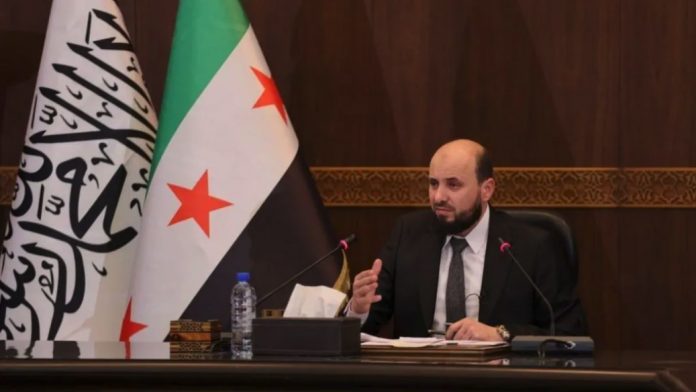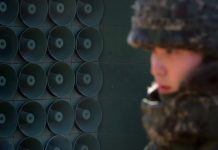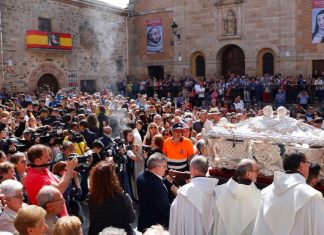นายกรัฐมนตรีคนใหม่ของรัฐบาลเปลี่ยนผ่านซีเรียได้กล่าวว่า ถึงเวลาแล้วที่ประชาชนจะได้ “เพลิดเพลินกับความสงบสุขและชีวิตที่มั่นคง” หลังการล้มล้างประธานาธิบดีบาชาร์ อัล-อัสซาด นายโมฮัมหมัด อัล-บาชีร์ อดีตหัวหน้าฝ่ายบริหารของกลุ่มกบฏในพื้นที่ตะวันตกเฉียงเหนือ ให้สัมภาษณ์กับสำนักข่าวอัลญะซีเราะห์ว่า เขาได้รับมอบหมายให้ดำรงตำแหน่งจนถึงเดือนมีนาคม 2025 โดยกลุ่มกองกำลังฮายัต ตาห์รีร์ อัล-ชาม (HTS) และพันธมิตร
เมื่อวันอังคารที่ผ่านมา นายบาชีร์เป็นประธานการประชุมที่กรุงดามัสกัส ร่วมกับสมาชิกคณะรัฐมนตรีชุดใหม่และคณะรัฐมนตรีของรัฐบาลอัสซาด เพื่อหารือเรื่องการโอนอำนาจและสถาบันต่าง ๆ ขณะที่ทูตพิเศษของสหประชาชาติประจำซีเรียเตือนว่า กลุ่มกบฏต้องแสดงออกเชิงปฏิบัติให้เห็นถึง “ข้อความที่ดี” ที่พวกเขาส่งออกมา
กลุ่ม HTS ได้ก้าวเข้ามามีบทบาทสำคัญในการบริหารพื้นที่ที่พวกเขาควบคุม โดยมีการฟื้นฟูบริการสาธารณะในพื้นที่เมืองอเลปโปที่เพิ่งยึดครอง เช่น การซ่อมแซมโครงข่ายไฟฟ้าและโทรคมนาคม รวมถึงการฟื้นฟูระบบรักษาความปลอดภัย
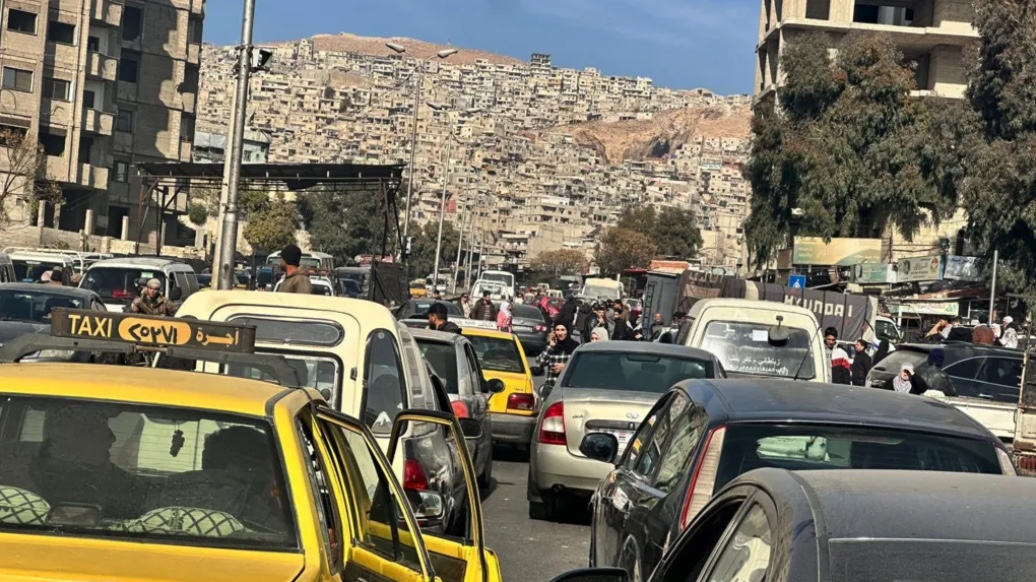
นายอัล-บาชีร์กล่าวว่า รัฐบาลกำลังจัดเตรียมระบบที่เหมาะสมเพื่อสนับสนุนชาวซีเรีย โดยการประชุมระหว่างอดีตรัฐมนตรีจากรัฐบาลของอัสซาดและรัฐมนตรีจากรัฐบาลของ HTS ถือเป็นก้าวสำคัญในการสร้างความร่วมมือ
แม้ว่าจะมีความพยายามสร้างเสถียรภาพในประเทศ แต่สหประชาชาติเตือนว่าการเปลี่ยนผ่านจะต้องครอบคลุมกลุ่มคนทุกภาคส่วนในซีเรีย เพื่อป้องกันความขัดแย้งใหม่ ในขณะเดียวกัน นายแอนโทนี บลิงเคน รัฐมนตรีว่าการกระทรวงการต่างประเทศสหรัฐฯ กล่าวว่า รัฐบาลใหม่จะได้รับการสนับสนุนอย่างเต็มที่หากเป็นผลมาจากกระบวนการที่น่าเชื่อถือและครอบคลุม
กลุ่ม HTS ซึ่งเคยมีความเชื่อมโยงกับอัลกออิดะห์ในอดีต ยังคงถูกจัดให้อยู่ในกลุ่มองค์กรก่อการร้ายโดยนานาชาติ แต่พวกเขากำลังส่ง “ข้อความที่ดี” ให้กับชาวซีเรียเพื่อแสดงถึงความสามัคคีและการมีส่วนร่วมของทุกฝ่าย
ทั้งนี้ ผู้สังเกตการณ์ระหว่างประเทศระบุว่า บททดสอบสำคัญอยู่ที่ความสามารถในการดำเนินการของรัฐบาลเปลี่ยนผ่านว่าจะสามารถตอบสนองความต้องการของประชาชนได้จริงหรือไม่
Syria’s new transitional PM calls for stability and calm
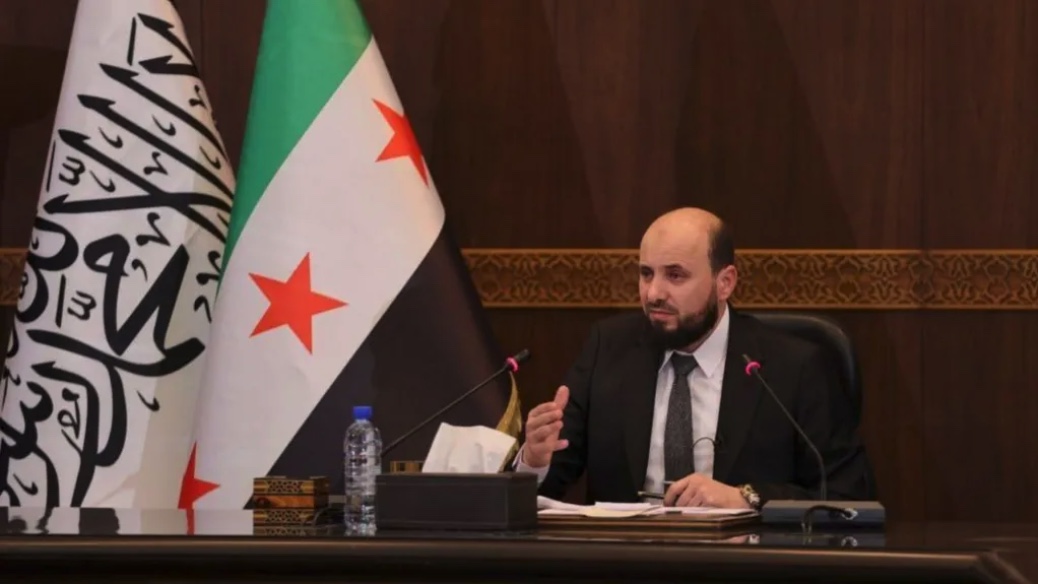
The prime minister of Syria’s new transitional government has said it is time for people to “enjoy stability and calm” after the overthrow of President Bashar al-Assad.
Mohammed al-Bashir, the former head of the rebel administration in the north-west, was speaking to Al Jazeera after being tasked with governing until March 2025 by the Islamist militant group Hayat Tahir al-Sham (HTS) and its allies.
Bashir chaired a meeting in Damascus on Tuesday attended by members of his new government and those of Assad’s former cabinet to discuss the transfer of portfolios and institutions.
It came as the UN envoy for Syria said the rebels must transform their “good messages” into practice on the ground.
The US secretary of state meanwhile said Washington would recognise and fully support a future Syrian government so long as it emerged from a credible, inclusive process that respected minorities.
In 2011, Assad brutally crushed a peaceful pro-democracy uprising, sparking a devastating civil war in which more than half a million people have been killed and 12 million others forced to flee their homes.
Before this week, Mohammed al-Bashir was little known outside the areas dominated by HTS in the north-western provinces of Idlib and Aleppo.
According to his CV, he trained as an electrical engineer and worked at gas plants before the start of the civil war in 2011.
In January, Bashir was appointed prime minister of the Salvation Government (SG), which HTS established to run the territory under its control.
The SG functioned like a state, with ministries, local departments, judicial and security authorities, while maintaining a religious council guided by Islamic law.
Around four million people, many of them displaced from elsewhere in the country, lived under its rule.
When institutions stopped functioning in Aleppo after HTS and its allies captured the city earlier this month at the start of their lightning offensive, the SG stepped in to restore public services.
Technicians reportedly helped repair local electricity and telecommunications networks, security forces patrolled streets, medics volunteered at hospitals, and charities distributed bread.
“It is true that Idlib is a small region lacking resources, but they [SG officials] have a very high-level of experience after starting with nothing,” HTS leader Abu Mohammed al-Jolani was heard telling Assad’s former prime minister, Mohammed al-Jalali, in a video of a meeting in Damascus on Monday.
“We will benefit from your experiences. We certainly won’t ignore you,” he added.
On Tuesday, Bashir was pictured chairing a meeting of former SG ministers and ministers who served under Jalali. He was sat in front of the Syrian opposition and the HTS flags.
“[We] invited members from the old government and some directors from the administration in Idlib and its surrounding areas in order to facilitate all the necessary works for the next two months until we have a constitutional system to be able to serve the Syrian people,” Bashir told Al Jazeera afterwards.
“We had other meetings to restart the institutions to be able to serve our people in Syria,” he added.
Meanwhile, life appeared to be slowly returning to normal in the capital Damascus after two days of near-shutdown.
There were many pedestrians and cars out on the streets, and some shops and restaurants were open.
People were also sweeping away spent bullet cases that littered the ground around the central Umayyad Square, where many rebel fighters fired into the air as crowds celebrated the end of Assad’s 24-year rule.
A Muslim cleric there told the BBC that Syrians were looking to the future and wanted a peaceful and united country.
“We want to establish a nation built on principles of nationalism, justice, and the rule of law, a technocratic state where institutions are respected, and equal opportunities are guaranteed for all,” Sheikh Abdul Rahman al-Kouky said.

UN special envoy Geir Pedersen told reporters in Geneva the transition needed to ensure “the representation of the broadest possible spectrum of the Syrian society and the Syrian parties”.
“If this is not happening, then we risk new conflict,” he warned.
Pedersen said the designation of HTS as a terrorist organisation by the UN, US, UK and other countries would be a “complicating factor” in efforts to find a way forward.
HTS’s precursor, al-Nusra Front, pledged allegiance to al-Qaeda in 2013. But three years later, it formally cut ties with the jihadist group.
“The reality is so far that HTS and also the other armed groups have been sending good messages to the Syrian people… of unity, of inclusiveness,” Pedersen noted.
“We gave also seen… reassuring things on the ground” in Aleppo and Hama, another major city that was captured last week, he added.
He said the most important test would be how the transitional arrangements in Damascus were organised and implemented.
“If they are really inclusive of all the different groups and all the communities in Syria… then there is a possibility for a new beginning.”
“And then I do believe that the international community will look at the [terrorist] listing of HTS again,” he added.
Later, US Secretary of State Antony Blinken in effect laid out a series of conditions which, if fulfilled, would see Syria enjoy Washington’s full recognition.
“It’s imperative that all actors involved protect civilians; respect human rights, especially of vulnerable minorities; preserve the state’s institutions, its services to help meet the needs of the Syrian; and to build towards inclusive governance,” he said.
“Statements by rebel leaders to these ends are very welcome, but of course, the real measure of their commitment is not just what they say but what they do.”
By David Gritten, BBC News






